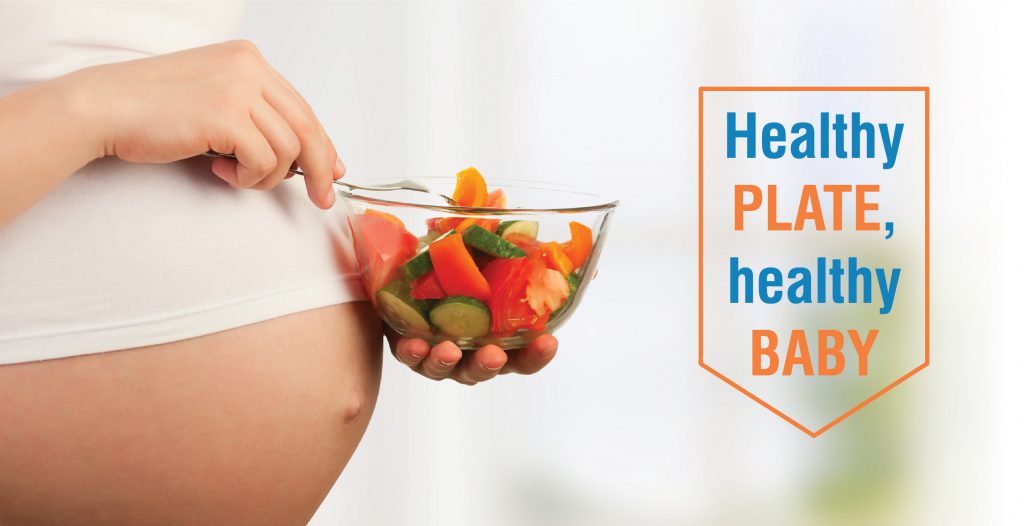
After conceiving, having a balanced diet and following a healthy lifestyle is vital for you and your little one. While you’re pregnant, your body is just not your own – it has your baby attached and dependent on it as well.
Healthy eating during pregnancy is important for your baby’s development and growth. You must have heard that maintaining a healthy and balanced diet throughout pregnancy is beneficial. But have you thought why and how is it important?
What do the recent studies suggest?
New research suggests that your eating habits during pregnancy affect not only your baby but also your grandchildren and great-grandchildren. Medical professionals believe that maternal diet plays an important role in your baby’s development.
One of the unique aspects of the research was to find how a mother’s eating habits can have an impact on her baby even before conceiving.
How was the study conducted?
Changes that occur in the DNA can cause changes in how genes are expressed which can be passed down to the next generations. To study this aspect, a study was conducted on mice. The mice were fed an unhealthy diet containing 60% fat and 20% sugar. This diet began prior to their conception and was maintained until weaning.
What did the study find?
The babies born to these obese mice who were fed an unhealthy diet were observed to develop diabetes as a result of the genetic change. These genetic changes were also seen in two further generations.
What does this study mean?
Although the study was conducted on mice, researchers strongly believe that these results are also relevant for human beings.
If you are obese, you may be at an increased risk of cardiovascular disease, diabetes and other health complications. If you were born to an obese mother, it can increase your chance of being obese too. Even if you are at a healthier weight, you may be at an increased risk of developing diabetes or cardiovascular disease. However, this research is unique as it shows that risks can persist for multiple generations.
How can this information be helpful?
It is important to know that risk is not always guaranteed. It may just increase the likelihood of certain outcomes. Knowing the risks will help you to make informed decisions. You cannot go back and change your mother’s or your habits. But, you can change your future habits.
Being informed that poor eating habits can have an impact on your child, can be a great motivation for you to make healthier choices. It can even help you to make lifestyle changes that may reduce the risk of obesity and diabetes in your child.
Consuming a healthy, balanced diet, maintaining a healthy lifestyle and breastfeeding are a few things which might help you to reduce your own risks of obesity, cardiovascular diseases and diabetes.
What should you do if you are planning to conceive?
It’s a great idea to begin working towards becoming the healthiest before conceiving. Consuming a healthy diet that is well balanced, staying hydrated and active may help you to reach a healthier weight and develop healthy lifestyle habits.
If you have risk factors for developing gestational diabetes, your obstetrician will help you to reduce that risk. Now as you know that your preconception diet plan may affect your baby, you can work on consuming a healthy diet for your baby’s well-being.
What if you are already pregnant?
You cannot change your preconception diet, but you can work on your current diet to avoid further risks in your pregnancy.
A well-balanced diet and some exercise during your pregnancy can help you to have a healthier pregnancy and to set up a good start in your baby’s life.
Foods to be avoided:
- Limit your sugar intake in drinks and food
- Processed and refined foods
- Low-fat food (they could be high in sugar)
Foods to be consumed:
- Proteins (eggs, fish, chicken, beans, dhals, nuts, milk products)
- Good fats (nuts and seeds, eggs, etc)
- Vegetables and leafy greens
Already having a baby?
If you have already conceived and given birth you can reduce your baby’s future risks through healthy eating and lifestyle choices. Providing yourself and your baby with a well-balanced diet can help improve the overall health.
Your nutritionist will plan a healthy diet to maintain your nutritional needs during pregnancy. S/he will work closely with your obstetrician to develop a meal plan that suits you the best. You will be educated on the portion sizes to have with proper meal timings while you are pregnant.
It can be intimidating for you to think about all the potential risks your lifestyle and eating choices can have on you and your baby. However, understanding how your body works and what steps should be taken to improve its working is important.
“Eating healthy and in the right amounts can have wonderful effects on the prenatal development of your baby”
-Anonymous
